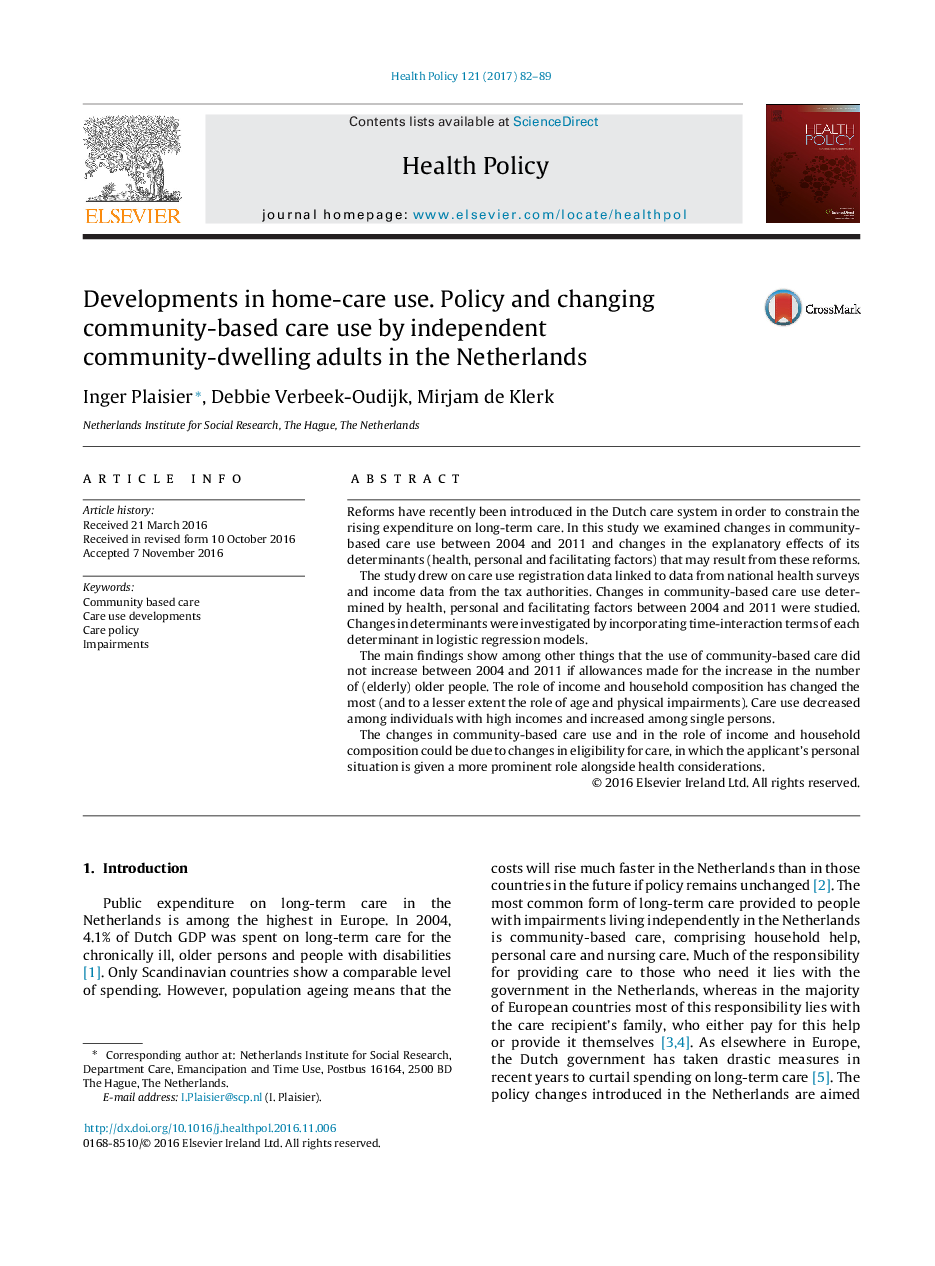| Article ID | Journal | Published Year | Pages | File Type |
|---|---|---|---|---|
| 5723343 | Health Policy | 2017 | 8 Pages |
â¢Community-based care in the Netherlands did not increase between 2004 and 2011.â¢The role of income in care use seemed to have increased.â¢The difference in care use between single and multiple-person households widened.â¢Care use by (elderly) older persons also appears to have increased.â¢Developments in care use are in line with the policy deployed.
Reforms have recently been introduced in the Dutch care system in order to constrain the rising expenditure on long-term care. In this study we examined changes in community-based care use between 2004 and 2011 and changes in the explanatory effects of its determinants (health, personal and facilitating factors) that may result from these reforms.The study drew on care use registration data linked to data from national health surveys and income data from the tax authorities. Changes in community-based care use determined by health, personal and facilitating factors between 2004 and 2011 were studied. Changes in determinants were investigated by incorporating time-interaction terms of each determinant in logistic regression models.The main findings show among other things that the use of community-based care did not increase between 2004 and 2011 if allowances made for the increase in the number of (elderly) older people. The role of income and household composition has changed the most (and to a lesser extent the role of age and physical impairments). Care use decreased among individuals with high incomes and increased among single persons.The changes in community-based care use and in the role of income and household composition could be due to changes in eligibility for care, in which the applicant's personal situation is given a more prominent role alongside health considerations.
